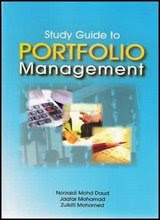Conference:
European Applied Business Research, Rothenberg, Germany, 18-20 June 2008
Authors:
Norzaidi Mohd Daud, Universiti Teknologi MARA;
Intan Salwani Mohamed, Universiti Teknologi MARA;
Faridah Hassan, Universiti Teknologi MARA
Organiser:
Clute Institute, USA
Year:
2008
Abstract:
The evolution of ICT has contributed to the sudden growth in the use of Intranet in doing business. One of the areas in industry that is affected by the growth of Intranet is the port industry. However, the impact of Intranet implementation in terms of performance improvement and related benefits are still elusive. This ambiguity comes largely from the absence of empirically-based assessment of Intranet implementation especially in the Malaysian port industry. Thus, this paper examines resistance on port middle managers’ performance in an organisational context. The study was conducted over a nine-month period in various organisations in Malaysian port industry. 357 middle managers were used as our sample to ascertain how are critical success factors (i.e. task-technology fit, perceived resistance, user resistance and usage) influence managers’ performances. The results from structural equation modeling (SEM) indicate that task-technology fit has relationships with usage and perceived resistance. In addition, the study suggested that perceived resistance is a predictor of user resistance. As expected, usage predicts managers’ performance, but not user resistance. Finally, there is no relationship between usage and user resistance, and vice-versa.
Download article:
Organiser:
Clute Institute, USA
Year:
2008
Abstract:
The evolution of ICT has contributed to the sudden growth in the use of Intranet in doing business. One of the areas in industry that is affected by the growth of Intranet is the port industry. However, the impact of Intranet implementation in terms of performance improvement and related benefits are still elusive. This ambiguity comes largely from the absence of empirically-based assessment of Intranet implementation especially in the Malaysian port industry. Thus, this paper examines resistance on port middle managers’ performance in an organisational context. The study was conducted over a nine-month period in various organisations in Malaysian port industry. 357 middle managers were used as our sample to ascertain how are critical success factors (i.e. task-technology fit, perceived resistance, user resistance and usage) influence managers’ performances. The results from structural equation modeling (SEM) indicate that task-technology fit has relationships with usage and perceived resistance. In addition, the study suggested that perceived resistance is a predictor of user resistance. As expected, usage predicts managers’ performance, but not user resistance. Finally, there is no relationship between usage and user resistance, and vice-versa.
Download article:












No comments:
Post a Comment